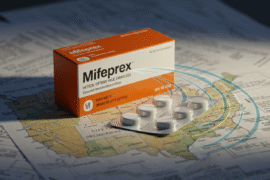This article may contain references to products or services from one or more of our advertisers or partners. We may receive compensation when you click on links to those products or services. Nonetheless, our opinions are our own.
The information presented in this article is accurate to the best of our knowledge at the time of publication. However, information is subject to change, and no guarantees are made about the continued accuracy or completeness of this content after its publication date.
- Doctorate of Healthcare Administration: Is It Worth the Investment?
- Key Highlights
- Introduction
- Understanding the Value of a Doctorate in Healthcare Administration
- Preparing for Your DHA Journey
- The Beginner’s Guide to Pursuing a DHA
- Conclusion
-
Frequently Asked Questions
- What Makes a DHA Degree Worth While?
- How Long Does It Typically Take to Complete a DHA Program?
- What are the potential career opportunities for someone with a Doctorate of Healthcare Administration?
- How does having a Doctorate of Healthcare Administration compare to other advanced degrees in the healthcare field?
- Are there any specific industries or sectors where having a Doctorate of Healthcare Administration is particularly valuable?
- Recommended Reads
Doctorate of Healthcare Administration: Is It Worth the Investment?
Key Highlights
- A DHA can equip you with sought-after expertise to excel as a leader within the evolving healthcare landscape.
- This blog post will break down the DHA program, career prospects, and the investment involved.
- We’ll explore the skills a DHA program nurtures, like leadership, healthcare analytics, and strategic planning.
- Discover how a DHA stacks up against an MBA or MHA when it comes to leading modern healthcare organizations.
- Learn practical steps to start your DHA journey, understand the admission requirements, and tailor your study plan.
Introduction
In the ever-changing world of healthcare, strong leadership is very important. The Doctorate of Healthcare Administration (DHA) program is becoming more popular. This program helps future healthcare leaders learn how to work with complex health systems, support new ideas, and make healthcare better for all. But is pursuing a DHA a good choice? Let’s think about this together.
Understanding the Value of a Doctorate in Healthcare Administration
Healthcare organizations are complex. They need special skills to run well. A DHA program focuses on these skills. It mixes knowledge of healthcare with strong business skills.
A DHA is a fast track to shaping healthcare systems. It helps you push for policy improvements and enhances patient care. You will learn to make decisions based on data, manage money wisely, and handle the changing world of healthcare.
The Role of Healthcare Administrators in Today’s Medical Field
Strong leadership is very important in all types of healthcare systems. This is where healthcare administrators play a big role. They are the strategists, problem-solvers, and decision-makers who make sure healthcare organizations work well.
Modern healthcare organizations, like hospitals and public health agencies, need leaders. These leaders must understand the difficulties of healthcare. They also need to drive innovation and adapt to new challenges. They must be ready to improve operations, support patients’ needs, and help shape the future of healthcare.
A DHA program can help prepare people for these important leadership roles. It focuses on making ethical decisions, improving communication skills, and understanding how to work in regulatory environments.
Comparing DHA with Other Healthcare Degrees
You might wonder how a DHA compares to other healthcare degrees like a Master’s in Healthcare Administration (MHA) or an MBA. While each path holds value, the DHA distinguishes itself. A master’s degree, such as an MHA, is a great stepping stone, providing a solid foundation in healthcare administration. An MBA can offer a broader business lens, suitable for those eyeing leadership in healthcare businesses.
For individuals who have aspirations of becoming the leaders of hospitals, healthcare organizations, or government agencies, a Doctor of Health Administration (DHA) program is an excellent choice because it delves more deeply into applied research, policy analysis, and leadership in complex healthcare systems.
| Degree | Focus | Career Targets |
|---|---|---|
| Master’s (e.g., MHA) | Foundational Healthcare Management | Mid-level Management Roles in Healthcare |
| MBA | Broad Business Administration | Leadership Roles in Healthcare Businesses |
| DHA | Applied Research and Policy in Healthcare | Executive Positions: Healthcare Policy and Research |
Preparing for Your DHA Journey
If you feel excited about changing healthcare systems and helping to improve health services, starting a DHA journey might be a great choice for you.
However, before you dive in, it’s important to review your qualifications and resources. Make sure you have what you need to succeed in a challenging doctoral program.
Essential Qualifications and Experience
Admissions criteria can differ by program, but there are some common requirements. Most DHA programs need a master’s degree. It is best if this degree is in a related area, like healthcare administration, public health, or business administration. Your transcripts should show a strong academic background, usually shown by having a minimum graduate GPA.
Besides academics, DHA programs want applicants with strong leadership skills. You can gain these skills from work experience, volunteering, or being active in professional groups. Your resume and letters of recommendation are important. They should highlight your experience.
Necessary Resources and Equipment for Success
Having the right resources to support your study is very important. It’s essential to understand research methods and data analysis. These skills are big assets.
DHA programs help students learn how to analyze healthcare data. They also teach about organizational behavior and how to evaluate research carefully. You will study topics like healthcare finance, strategic planning, and health policy.
The Beginner’s Guide to Pursuing a DHA
Are you ready to jump in? Starting your DHA journey may look tough, but it doesn’t have to be. Let’s make the process easier. We can break it down into simple steps. This will help you feel sure and ready for this exciting academic path.
Step 1: Researching Potential Programs
The first step is to research DHA programs carefully. You should think about a few important factors. These include the program’s reputation, the expertise of the faculty, and how it fits with your career goals.
Step 2: Meeting Admission Requirements
Once you have made a list of potential DHA programs, take a close look at their admission requirements. Usually, you need a master’s degree from an accredited school. You will also need to have a minimum GPA, letters of recommendation, and a strong personal statement.
Once you have all the needed documents ready, it’s time to send in a great application. Show how your experiences, values, and career goals connect with the DHA program.
Step 4: Planning Your Study Schedule
Congratulations on getting into a DHA program! Now, you need to make a study plan that fits your life. DHA programs can be tough. They need hard work and good time management.
Conclusion
In conclusion, getting a Doctorate of Healthcare Administration (DHA) can greatly improve your job chances in the changing medical field. By having the right skills, commitment, and access to tools, you can start a rewarding path to leadership roles in healthcare administration. You can set up a successful DHA journey by looking into programs, meeting entrance needs, and planning your study time well. The knowledge and skills you gain from a DHA program open up many job options. This makes it a smart choice for your professional development. If you want to make a real impact in healthcare management, a DHA might be the perfect choice for you.
Frequently Asked Questions
What Makes a DHA Degree Worth While?
A Doctorate in Healthcare Administration (DHA) is valuable. It helps improve leadership skills and can lead to higher pay. It also opens up more job options in the healthcare field.
How Long Does It Typically Take to Complete a DHA Program?
Completing a doctorate in healthcare administration usually takes 3 to 5 years. This depends on if you are studying part-time or full-time, how long it takes to finish your dissertation, and the program’s structure.
What are the potential career opportunities for someone with a Doctorate of Healthcare Administration?
With a doctorate in healthcare administration, you can enjoy many top jobs. These include positions like Chief Executive Officer, Healthcare Consultant, or University Professor.
How does having a Doctorate of Healthcare Administration compare to other advanced degrees in the healthcare field?
A DHA gives you special skills for leadership positions. It is different from a master’s degree. This degree focuses more on healthcare management than clinical practice, which is what an MD or Ph.D. does.
Are there any specific industries or sectors where having a Doctorate of Healthcare Administration is particularly valuable?
A doctorate in healthcare administration is very important in places like hospitals, healthcare consulting firms, pharmaceutical companies, and government healthcare agencies.

Reviewed and edited by Albert Fang.
See a typo or want to suggest an edit/revision to the content? Use the contact us form to provide feedback.
At FangWallet, we value editorial integrity and open collaboration in curating quality content for readers to enjoy. Much appreciated for the assist.
Did you like our article and find it insightful? We encourage sharing the article link with family and friends to benefit as well - better yet, sharing on social media. Thank you for the support! 🍉
Article Title: Doctorate of Healthcare Administration: Is It Worth the Investment?
https://fangwallet.com/2025/02/15/doctorate-of-healthcare-administration/The FangWallet Promise
FangWallet is an editorially independent resource - founded on breaking down challenging financial concepts for anyone to understand since 2014. While we adhere to editorial integrity, note that this post may contain references to products from our partners.
The FangWallet promise is always to have your best interest in mind and be transparent and honest about the financial picture.
Become an Insider

Subscribe to get a free daily budget planner printable to help get your money on track!
Make passive money the right way. No spam.
Editorial Disclaimer: The editorial content on this page is not provided by any of the companies mentioned. The opinions expressed here are the author's alone.
The content of this website is for informational purposes only and does not represent investment advice, or an offer or solicitation to buy or sell any security, investment, or product. Investors are encouraged to do their own due diligence, and, if necessary, consult professional advising before making any investment decisions. Investing involves a high degree of risk, and financial losses may occur including the potential loss of principal.
Source Citation References:
+ Inspo












































